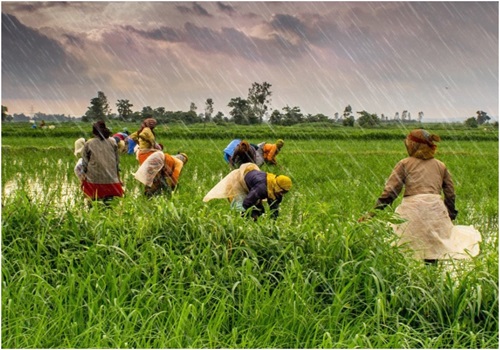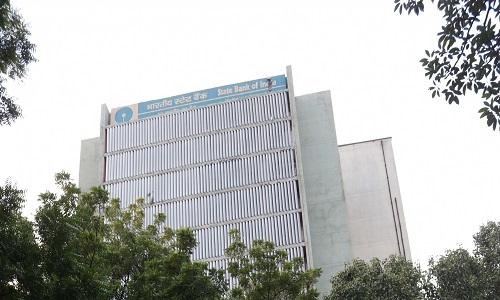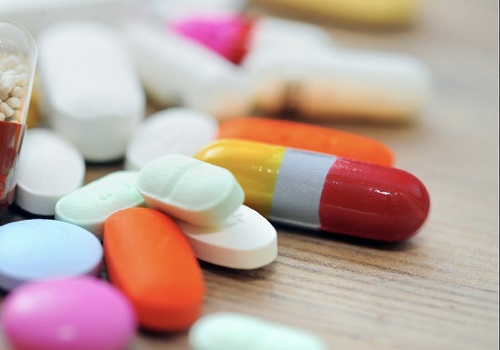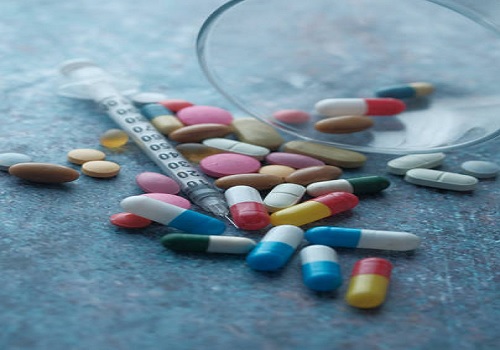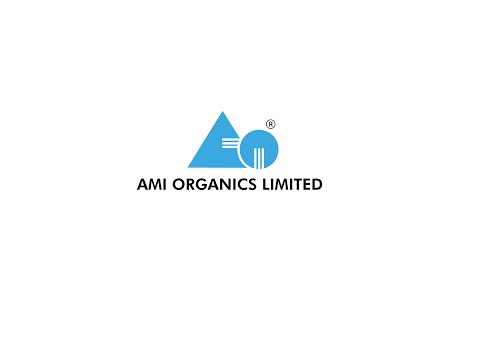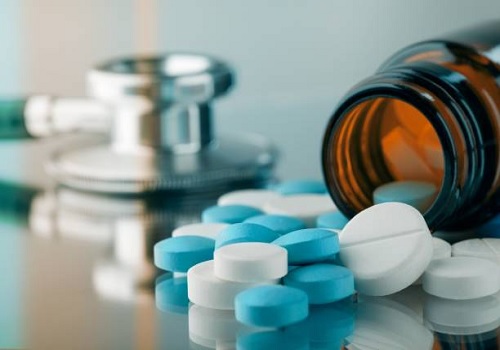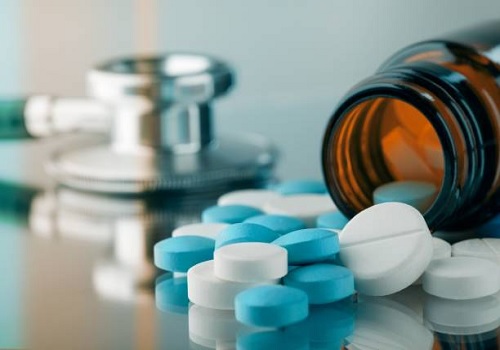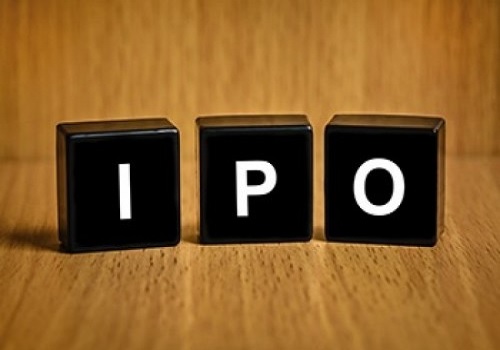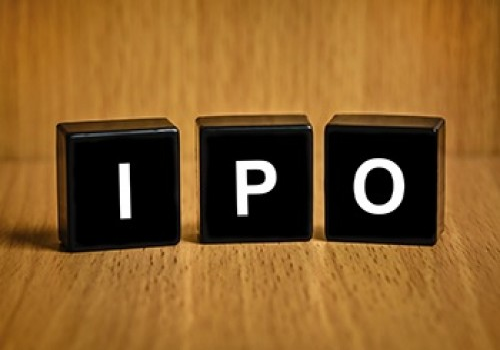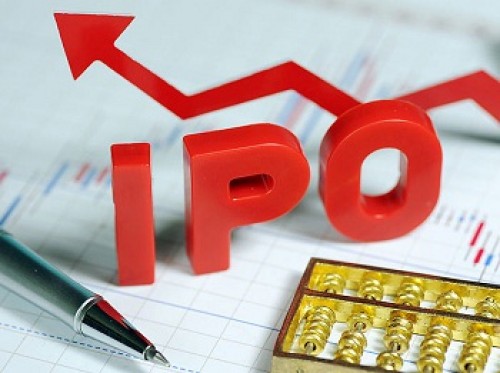Ami Organics coming with an IPO to raise upto Rs 572 crore

Follow us Now on Telegram ! Get daily 10 - 12 important updates on Business, Finance and Investment. Join our Telegram Channel
-
Ami Organics is coming out with a 100% book building; initial public offering (IPO) of 93,76,349 shares of Rs 10 each in a price band Rs 603-610 per equity share.
-
Not more than 50% of the issue will be allocated to Qualified Institutional Buyers (QIBs), including 5% to the mutual funds. Further, not less than 15% of the issue will be available for the non-institutional bidders and the remaining 35% for the retail investors.
-
The issue will open for subscription on September 1, 2021 and will close on September 3, 2021.
-
The shares will be listed on BSE as well as NSE.
-
The face value of the share is Rs 10 and is priced 60.30 times of its face value on the lower side and 61 times on the higher side.
-
Book running lead manager to the issue are Intensive Fiscal Services, Ambit Capital and Axis Capital.
-
Compliance Officer for the issue is Ekta Kumari Srivastava.
Profile of the company
The company is a research and development (R&D) driven manufacturer of specialty chemicals with varied end usage, focused towards the development and manufacturing of advanced pharmaceutical intermediates (Pharma Intermediates) for regulated and generic active pharmaceutical ingredients (APIs) and New Chemical Entities (NCE) and key starting material for agrochemical and fine chemicals, especially from its recent acquisition of the business of Gujarat Organics (GOL) (Acquisition). The company is one of the major manufacturers of Pharma Intermediates for certain key APIs, including Dolutegravir, Trazodone, Entacapone, Nintedanib and Rivaroxaban. The Pharma Intermediates which it manufacture, find application in certain high-growth therapeutic areas including anti-retroviral, anti-inflammatory, anti-psychotic, anti-cancer, anti-Parkinson, anti-depressant and anti-coagulant, commanding significant market share both in India and globally.
The company has developed and commercialized over 450 Pharma Intermediates for APIs across 17 key therapeutic areas since inception and NCE, with a strong focus on R&D across select high-growth high margin therapeutic areas such as anti-retroviral, anti-inflammatory, anti-psychotic, anti-cancer, anti-Parkinson, anti-depressant and anti-coagulant, for use across the global pharmaceutical market. In addition, the company recently completed the acquisition of two additional manufacturing facilities operated by GOL which has added preservatives (parabens and parabens formulations which have end usage in cosmetics, animal food and personal care industries) and other specialty chemicals (with end usage in inter alia the cosmetics, dyes polymers and agrochemicals industries) in its existing product portfolio, which command significant market share globally in the supply of certain paraben derivatives. The acquisition is in line with company’s inorganic growth strategy of foraying further into the specialty chemicals sector and it will enable it to significantly diversify its existing product portfolio, with an objective of attaining inorganic expansion of its business.
Proceed is being used for:
-
Repayment/prepayment of certain financial facilities availed by company.
-
Funding working capital requirements of company.
-
General corporate purposes.
Industry overview
The Indian chemicals market is valued at $166 Bn (4% share in the global chemical industry) in 2019. It is expected to reach $326 billion by 2025, with an anticipated growth of 12% CAGR. The specialty chemical industry forms 47% of the domestic chemical market, which is expected to grow at a CAGR of around 11-12% over the same period. The Specialty chemicals industry is driven by both domestic consumption and exports. India’s specialty chemical companies are gaining favour with global MNCs because of the geopolitical shift after the outbreak of Covid-19 as the world looks to reduce its dependence on China. Currently China accounts for 15-17% of the world’s exportable specialty chemicals, whereas India accounts for merely 1-2% indicating that the country has large scope of improvement and widespread opportunity. It is anticipated that Specialty chemicals will be the next great export pillar for India. The chemical industry contributes approximately 6.6% of national gross domestic product and accounts for 15-17% of India’s manufacturing sector in FY19. The government permits 100% foreign direct investment (FDI) in this sector under the automatic approval route.
The Indian Pharmaceuticals market was valued at $59 billion in 2020, contributing to around 4% of the Global market. The Indian market is expected to grow at around CAGR of 10% between 2020 and 2025 fuelled by substantial increase in Indian API domestic consumption. Indian pharmaceutical sector supplies over 50% of the global demand for various vaccines, 40% of the generic demand for US and 25% of all medicines for UK. India contributes the second largest share of pharmaceutical and biotech workforce in the world. Indian pharmaceutical industry exported medicines and other goods worth over $25 billion in 2020, up from $20.7 billion in 2019. In the year of 2019 exports of formulations accounted for 65-68% of the total exports and the share of the same increased in 2020 owing to high exports of drug formulations from India to cure Covid. The Indian healthcare industry is expected to be among the top-3 healthcare industries globally in terms of incremental growth by 2020. The growing prevalence of chronic diseases due to an increasing aged population in India and globally, coupled with government initiatives for manufacturing under ‘Make in India’ and the global need for lower cost therapies at high quality has led to health investments from pharmaceutical players, fostering development of the healthcare industry.
Pros and strengths
Strong and diversified product portfolio: The company is a R&D driven manufacturer of specialty chemicals with varied end usage, focussed towards the development and manufacturing of Pharma Intermediates for regulated and generic APIs and NCE and key starting material for agrochemical and fine chemicals. Based on its existing business strategy of early identification of molecules for development and supply, it has developed and commercialised over 450 Pharma Intermediates for APIs including Dolutegravir, Trazodone, Entacapone, Nintedanib and Rivaroxaban and NCEs across 17 high growth therapeutic areas since inception, such as anti-retroviral, anti-inflammatory, anti-psychotic, anti-cancer, anti-Parkinson, anti-depressant and anti coagulant. Its R&D centre at Sachin has been approved by DSIR and has a specialised team of 66 people across various sections including R&D, regulatory affairs, quality control, quality assurance and analytical development laboratory.
Extensive geographical presence and diversified customer base: The company caters to domestic and certain multi-national pharmaceutical companies which cater to the large and fast growing markets of Europe, China, Japan, Israel, UK, Latin America and the USA. In Fiscals 2021, 2020 and 2019, its revenue from exports contributed 51.57%, 45.89% and 49.61%, respectively of its revenue from operations. It supply its products to 25 countries and have long standing relationships with numerous domestic and global pharmaceutical companies. Specifically, it cater extensively to the large geographies of Italy, Finland, France and China, which contributed to 35.47%, 17.67%,10.55% and 9.45% respectively, of its total revenue from exports for Fiscal 2021.
High entry barriers in the chemicals manufacturing industry in which the company operates: The company manufacture and market advanced pharmaceutical intermediates used for manufacturing of APIs and NCEs in select therapeutic areas such as anti-retroviral, anti-inflammatory, anti-psychotic, anti-cancer, anti-Parkinson, anti-depressant and anti-coagulant. This pharmaceutical intermediates business has high entry barriers inter alia due to: (a) a long gestation period to be enlisted as a supplier with the customers, particularly with the customers in US and European countries, which requires suppliers to adhere to strict compliance requirements, leading to a high regulatory gestation period; and (b) the involvement of complex chemistries in the manufacturing process, which is difficult to commercialize on a large scale. Its Sachin facility is USFDA inspected and in respect of which it has received the EIR twice, in 2018 and 2020.
Strong sales and marketing capabilities: The company has strong sales, marketing and distribution capabilities. Since the company’s incorporation in 2007, it has created a sales division, aligned with its key therapeutic areas and has focused on developing and growing its engagement with specialists and super specialists. Its marketing team utilizes a variety of sales and marketing techniques and programs to promote its products, including promotional materials, speaker programs, key pharmaceutical trade exhibitions such as CPHI and CHEMSPEC, industry publications, advertising and other media besides reliance on a strong market research-based model wherein it focus on development of advanced pharmaceutical intermediates either for molecules which are under clinical trials; or for molecules which have been launched and approved by pharmaceutical regulators worldwide, including the US-FDA.
Risks and concerns
Derive significant portion of revenue from sale of products in certain therapeutic areas: The company derive a significant portion of its revenue from the sale of pharmaceutical intermediates used in active pharmaceutical ingredients (API), which primarily comprises the sale of products in the therapeutic areas of anti-psychotic, anti-retroviral, anti-cancer, anti-depressant, anti-Parkinson’s, anti-inflammatory and anti-coagulant. For Fiscal 2021, the company’s revenue from its pharmaceutical intermediates used in therapeutic areas of anti-depressant, anti-retroviral and anti-coagulant was Rs 953.26 million, Rs 727.38 million and Rs 229.94 million comprising of 27.99%, 21.36% and 6.75%, respectively and for Fiscal 2020 was Rs 418.07 million, Rs 600.34 million and Rs 172.66 million comprising of 17.45%, 25.05% and 7.21% and for Fiscal 2019 was Rs 633.62 million, Rs 460.42 million and Rs 116.42 million comprising of 26.57%, 19.30% and 4.88% of its ravenue from operations, respectively. The API market is characterized by rapid innovative changes.
Operations depend on continuous R&D: The company’s success depends significantly on its ability to commercialize its new products. In order to remain competitive, it must develop, test and manufacture new products, which must meet regulatory standards and receive requisite regulatory approvals. To accomplish this, it commit substantial effort, funds and other resources towards its R&D activities and it has set-up dedicated R&D laboratory in Surat, Gujarat, which is also supported by its Analytical Development Laboratory (ADL) in relation to developmental activities, freezing specifications and developing the method of analysis for finished products, in process intermediates, Key Starting Materials (KSMs) and raw materials. The company incurred R&D expenditure of Rs 64.99 million, Rs 85.94 million and Rs 23.63 million respectively, which accounted for 2.40%, 4.14% and 1.16% of the total expenditure in the Financial Years 2021, 2020 and 2019, respectively.
Business requires significant amount of working capital: The company’s business requires significant amount of working capital primarily as a considerable amount of time passes between purchase raw materials and sale of its finished products and the subsequent collection process viz. its customers. As a result, it is required to maintain sufficient stock at all times in order to meet manufacturing requirements, thus increasing its storage and working capital requirements. There could be situations where the total funds available may not be sufficient to fulfil its commitments, and hence it may need to incur additional indebtedness in the future or utilize internal accruals to satisfy its working capital needs. Its future success depends on its ability to continue to secure and successfully manage sufficient amounts of working capital.
Business depends on manufacturing facilities: The company’s business is dependent on its ability to manage its Manufacturing Facilities, including productivity of its workforce, compliance with regulatory requirements and those beyond its control, such as the breakdown and failure of equipment or industrial accidents and severe weather conditions and natural disasters and pandemics, including the COVID-19 pandemic which caused certain disruptions in its operations last year and may cause disruptions in the future as well. As a result, any local social unrest, natural disaster or breakdown of services and utilities in that area could have material adverse effect on the business, financial position and results of its operations. Further, it is heavily dependent on its vendors to supply in a timely and cost effective manner, various equipment’s required by it for its operations.
Outlook
Incorporated in 2004, Ami Organics is one of the leading research and development driven manufacturers of specialty chemicals. The company manufactures different types of Advanced Pharmaceutical Intermediates and Active Pharmaceutical ingredients (API) for New Chemical Entities, and material for agrochemicals and fine chemicals. The company has developed over 450 pharma intermediates across 17 key therapeutic areas i.e. anti-retroviral, anti-inflammatory, anti-psychotic, anti-cancer, anti-Parkinson, anti-depressant, and anti-coagulant. The company caters to domestic and certain multi-national pharmaceutical companies which cater to the large and fast-growing markets of Europe, China, Japan, Israel, UK, Latin America and the USA. The company continually invests in R&D activities to stay ahead and create a differentiating factor and sustainability vis-a-vis its competitors. On the concern side, the industry in which the company operates presents significant entry barriers, including customer validation and approvals, expectation from customers for process innovation and cost reduction, high quality standards and stringent specifications. The company relies on various forms of transportation, such as marine, roadways and railways to receive raw materials required for its products and to deliver its finished products to its customers. Unexpected delays in those deliveries, including due to delays in obtaining customs clearances for raw materials imported by it, transportation strikes or increases in transportation and fuel costs, could significantly decrease its ability to make sales and earn profits.
The issue has been offered in a price band of Rs 603-610 per equity share. The aggregate size of the offer is around Rs 565.39 crore to Rs 571.95 crore based on lower and upper price band respectively. On the performance front, the company’s total revenue in Fiscal 2021 was Rs 3,419.88 million, which represented an increase of 41.03% over its total revenue in Fiscal 2020 of Rs 2,424.86 million primarily due to an increase in revenue from operations. Its profit for the year in Fiscal 2021 was Rs 539.99 million, an increase of 96.57% over its profit for the year in Fiscal 2020 of Rs 274.70 million. With a view to further strengthen its R&D capabilities, the company continuously recruit and appoint scientists of varied experience and expertise at its R&D laboratory with an objective to successfully implement its strategy of early identification of development and manufacturing opportunities. It intends to develop, test and manufacture new products meeting regulatory standards subsequent to receipt of requisite regulatory approvals from the relevant authorities in India and overseas and make investments on an ongoing basis in new product launches and research and development for future products.












 320-x-100_uti_gold.jpg" alt="Advertisement">
320-x-100_uti_gold.jpg" alt="Advertisement">

